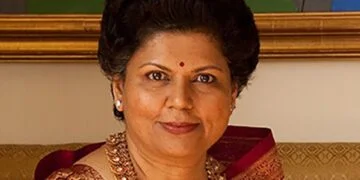Ricky Kej life seemed to have come full circle when it was revealed that Stewart Copeland and Ricky Kej would win the Grammy for Best New Age Album in the early hours of Monday morning. Knelt down on stage to thank Copeland for being a part of his “musical journey,” clothed in a navy blue bandhgala. Copeland’s posters adorned my bedroom walls as a kid, and now I’m honored to share a Grammy with him. On stage, Kej, 40, exclaimed, “It’s incredible.” When it comes to living in harmony with others, “Vasudev Kutumbhkam – the world is one family… live in harmony with the human race and all other beings on this earth” is a common phrase in India. According to Kej, “Divine Tides” was all about coexistence.
The musician from India has now won two Grammys in a row. Winds of Samsara, a duet with South African flutist Wouter Kellerman, won him his first Grammy at the 57th Grammy Awards in 2015. After honoring their respective national fathers, Mahatma Gandhi and Nelson Mandela, the 14-song CD then went on to examine other aspects of Indian and African music.
Kej was born in the United States, but his family moved to Bengaluru when he was eight years old, and he has lived there ever since. He went to Bishop Cotton Boys’ School, where he learned to play the piano and guitar on his own through self-taught instruction. At the time he was studying to become a dentist in college, he realized that music was what he really wanted to do. As a teenager, Kej wanted to pursue Hindustani classical music and Western musical styles, much of which he learned from Pakistani musician Ut Nusrat Fateh Ali Khan and British vocalist Peter Gabriel. For a brief period, he served as the keyboardist for Bengaluru-based progressive rock band Angel Dust. It all began with him writing jingles for firms like Google, IBM, McDonald’s and Pepsi and he has written hundreds of them. New age and global music, whether classical or jazz or electronic or some combination of all three, became an interest of Kej’s while working on commercial jingles. Besides Copeland’s varied drum patterns and gentle vocals, the sitar and flute are featured prominently in Divine Tides’ soundscape. The result is a nine-track CD that pays tribute to the natural world through a variety of soundtracks and ambient sounds.
True to her roots as an Indian-born New Yorker, Falguni Shah, better known as Falu, was awarded the Grammy for Best Children’s Album for A Colorful World (El Cerrito Records). Inspired by her problems in conveying the concept of fairness to her brown child, who attends school among children from various ethnic backgrounds, the album was created. That’s why we wrote a song about getting brown or finding out who we really are.” This was a straightforward tale about a box full of crayons of all different hues coexisting together. I wanted to show him that being brown is fine. Children are far more receptive when their parents communicate with them through music and happiness. “When you talk to your kids through music and happiness, it rapidly penetrates their minds as opposed to lectures,” Falu said in an earlier interview about the album, which consists of 11 tracks.

Faulu beat out Lucky Diaz and the Family Jam Band (Crayon Kids), 123 Andrés (Actvate), 1 Tribe Collective (All One Tribe), which features 26 artists from a black family, and American politician and musician Pierce Freelon to win this year’s Grammy Award (Black to the Future). She appeared on stage with her kid and two other youngsters who had been included in the CD in a crimson brocade and embroidery gown. It’s not the first time that Falu has been nominated for Falu’s Bazaar, and it’s not the last.
The greatest children’s music category at the Grammys 2020 became engaged in controversy early last year, which is rare for such a straightforward category. All five finalists in the category refused to accept their nominations because the category was “all-white,” including themselves. In the wake of the Black Lives Matter movement, which raised questions about racial justice in the United States, this occurred. Several artists, including Alistair Moock, Dog on Fleas, and the Okee Dokee Brothers, did not accept Grammy nominations. Five artists of color, including Falu, were nominated for the first time as a result of the discussions that followed, which led to changes in Academy policy. Denying the nomination was one method for the Recording Academy to send a message that some genres of music don’t have enough diverse representation. Falu said the Academy changed how it chose a winner because of this. Non-craft categories including children’s music will be determined by public vote under the new policy, a major shift from the system’s prior lack of openness. The performers and producers on Falu’s record are diverse. “Music brought us together,” she said of their various backgrounds.







































